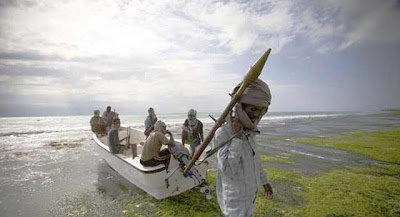A 13-year-old girl has bled to death in Yemen three days after her marriage to a man in his twenties, a human right group says.
The Arab Sisters Forum (Saf) said a medical report by the hospital where she was treated revealed the girl had suffered a tear to her genitals and severe bleeding after intercourse.
There was no confirmation of the death from Yemeni officials.
More than a quarter of Yemeni brides are under 15.
Last year a law setting the minimum age for brides at 17 was repealed by lawmakers whon claimed it was 'unIslamic'. A final decision is due this month.
Friday, 9 April 2010
Thursday, 8 April 2010
Kyrgyzstan's overthrown president makes an appearance
Kyrgyzstan's President Kurmanbek Bakiyev has surfaced in the south of the country to claim he is still in control.
He was forced to flee as a popular uprising overwhelmed government security forces and protestors ransacked the presidential building.
Riots erupted in the capital Bishkek on Wednesday as anger and resentment about government corruption and high electricity prices boiled over into violence.
Security forces opened fire but found themselves outnumbered and soon lost control. 75 people were reported killed.
It marked an ironic end to the 'Tulip revolution' that brought Mr Bakiyev to power five years ago. Then, as now, the grievances were corruption, nepotism and a faltering economy.
The opposition, led by former foreign minister Roza Otunbayeva, formed an interim government that stated it will govern until fresh elections are held in six months time.
Ms Otunbayeva claimed Thursday that calm had returned to Bishkek and that her self-appointed government had filled the power vacuum.
She then received a round of applause when she pledged to immediately cut electricity prices.
Rampant looting has left much of the city in ruins and has damaged its already struggling economy.
Kyrgyzstan is one of the poorest former Soviet republics but is plays an important role in the geostrategic power play of the world's superpowers.
Both the US and Russia have military bases there and China is keen to quell any signs of unrest, fearing it could lead to similar violence in its northern provinces that border the country.
He was forced to flee as a popular uprising overwhelmed government security forces and protestors ransacked the presidential building.
Riots erupted in the capital Bishkek on Wednesday as anger and resentment about government corruption and high electricity prices boiled over into violence.
Security forces opened fire but found themselves outnumbered and soon lost control. 75 people were reported killed.
It marked an ironic end to the 'Tulip revolution' that brought Mr Bakiyev to power five years ago. Then, as now, the grievances were corruption, nepotism and a faltering economy.
The opposition, led by former foreign minister Roza Otunbayeva, formed an interim government that stated it will govern until fresh elections are held in six months time.
Ms Otunbayeva claimed Thursday that calm had returned to Bishkek and that her self-appointed government had filled the power vacuum.
She then received a round of applause when she pledged to immediately cut electricity prices.
Rampant looting has left much of the city in ruins and has damaged its already struggling economy.
Kyrgyzstan is one of the poorest former Soviet republics but is plays an important role in the geostrategic power play of the world's superpowers.
Both the US and Russia have military bases there and China is keen to quell any signs of unrest, fearing it could lead to similar violence in its northern provinces that border the country.
Thursday, 1 April 2010
Kenya ends Somali pirate trials

The Kenyan government has refused to try any more Somali pirates in its courts citing a lack of international support.
A Kenyan government official said the country had received little help with the 'burden' of prosecuting and imprisoning pirates.
"For the last two weeks we have declined to accept captured pirates from some of our friendly countries and told them to try it elsewhere," Kenyan Foreign Minister Moses Wetangula told reporters.
"We discharged our international obligation. Others shied away from doing so. And we cannot bear the burden of the international responsibility," he said.
Kenya originally agreed to the EU brokered deal because the fight against piracy was damaging its economy.
Higher insurance costs for both cargo and tourist ships have reduced traffic in Mombasa's port.
Pirate attacks have become increasingly audacious despite an international effort to patrol one of the busiest shipping lanes in the world.
In 2005 the furthest attack took place 165 nautical miles off the coast of Somalia.
As of March 2010 that maximum distance now stands at 1,100 nautical miles, with the southernmost and easternmost attacks taking place in that month.
Subscribe to:
Comments (Atom)